
Science Update: Delayed cord clamping may benefit infant brain development, NIH-funded study finds
A 5-minute delay in clamping the umbilical cord after birth may benefit an infant’s developing brain, suggests a small study funded by the National Institutes of Health. By 4 months of age, the brains of infants in the study who underwent delayed clamping had more myelin, a brain-insulating material, compared to those whose cords were clamped within 20 seconds.
Spotlight: Women in Science: Reflecting on Five Decades of Research with Keiko Ozato
Seventy-seven year old NICHD researcher Keiko Ozato, Ph.D., started her laboratory in 1981. We caught up with her as she thought about how some early challenges shaped her life and research career.
Media Advisory: NICHD chronicles its major research advances of 2018
As 2018 winds down, a new slideshow highlights a selection of initiatives, therapies, and scientific advances supported by NIH’s Eunice Kennedy Shriver National Institute of Child Health and Human Development (NICHD).
Spotlight: Selected NICHD Research Advances of 2018
In 2018, researchers funded by NICHD made significant progress in advancing the health and well-being of infants, children, teenagers, and adults across the United States and around the world.
Item of Interest: NICHD seeks applications to study effects of maternal opioid use on newborns
The initiative seeks to improve treatment and care of infants and children who were exposed to opioids in the womb.
Release: Astrocytes regulate signal speeds of neurons
NIH findings in rodents suggest that astrocytes play an important role in how the brain processes information.
Science Update: Researchers identify two cell types that produce melatonin in pineal gland
The brain’s pineal gland has two kinds of pinealocytes—cells that make melatonin—the hormone that regulates the body’s sleep and wake cycles, according to a rodent study conducted by researchers at the National Institutes of Health. The findings have the potential to inform future research on disorders that involve melatonin, such as jet lag and seasonal affective disorder.
Spotlight: Highlighting Research on Attention Deficit/Hyperactivity Disorder
NICHD’s mission includes understanding child development and behavior. Check out these scientific advances related to Attention Deficit/Hyperactivity Disorder.
Science Update: NICHD researchers identify neurons that prevent sensory overload
New findings in zebrafish help explain how the brain filters information from the environment and may improve our understanding of neurological disorders.
Science Update: NICHD researchers identify protein important for neurodevelopment in mice
A protein found only in mouse embryos and not in adult mice is important for fetal neurodevelopment, according to NICHD researchers.
Science Update: NIH study uncovers protein responsible for post-nerve-injury pain and inflammation
The findings suggest new ways to treat long-term pain without opioids.
Item of Interest: NICHD enhances partnership with Kappa Alpha Psi Fraternity to promote safe infant sleep
As part of NICHD’s continued partnership with the Kappa Alpha Psi Fraternity®, Inc., the NICHD-led Safe to Sleep® campaign recently launched a mini-grant program to support fraternity members in conducting safe infant sleep outreach. The mini-grants will enable Kappa members to lead and host activities in their communities, where they can share safe infant sleep messages in culturally sensitive ways.
Science Update: NICHD researchers identify key enzyme for nerve cell insulation
Findings from the mouse study offer clues on myelin-related diseases that impair the nervous system in people.
Release: Graduates of early childhood program show greater educational gains as adults
Students who participated in an intensive childhood education program from preschool to third grade were more likely to achieve an academic degree beyond high school, compared to a similar group that received other intervention services as children, according to a study funded by the National Institutes of Health.
Spotlight: Selected NICHD Research Advances of 2017
Over the past year, NICHD contributed to numerous scientific advances and key initiatives.
Spotlight: Zika Research after Hurricane Maria
Dr. Carmen Zorrilla, who leads NICHD’s Zika in Infants and Pregnancy (ZIP) study in Puerto Rico, reports on how Hurricane Maria affected the Island’s largest hospital in San Juan.
Media Advisory: NIH study identifies brain patterns underlying mothers’ responses to infant cries
Infant cries activate specific brain regions related to movement and speech, according to an NICHD-led study of mothers in 11 countries.
Experimental treatment for Niemann-Pick disease type C1 appears safe, effective
An experimental drug appears to slow the progression of Niemann-Pick disease type C1 (NPC1), a fatal neurological disease, according to results of a clinical study led by researchers at the National Institutes of Health (NIH). The study appears in The Lancet.
Focus on Early Learning
Children start learning long before they start going to school. Find out how you can support your child's learning from birth.
Focus on Caring for Critically Ill Children
NICHD supports research on the unique short- and long-term care needs of children with and recovering from serious and life-threatening illnesses and injuries.
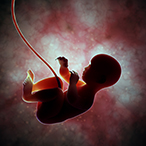

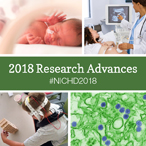
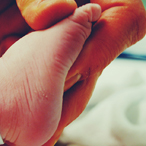
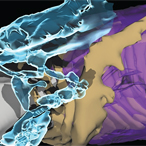
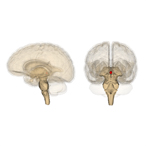
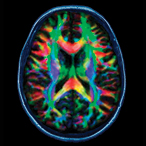
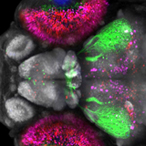
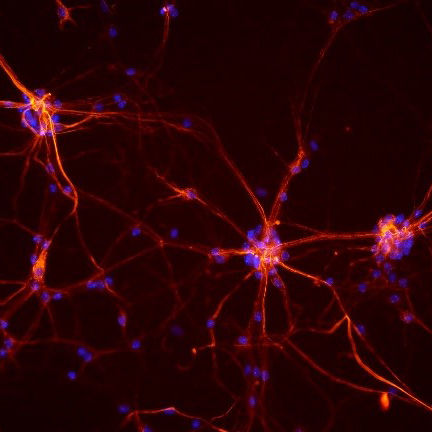
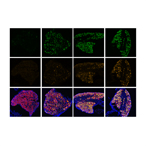

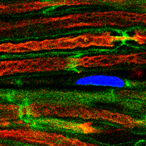




























.png)












No hay comentarios:
Publicar un comentario